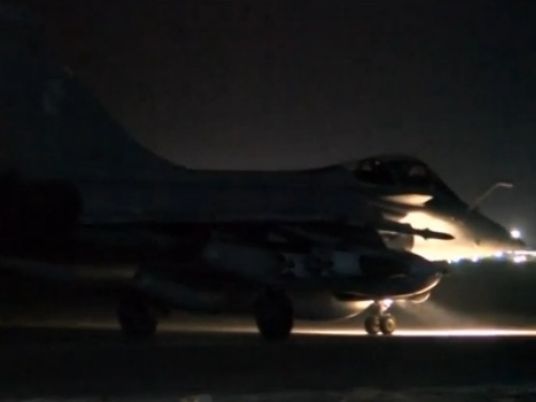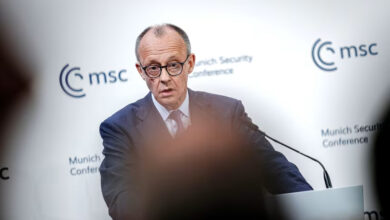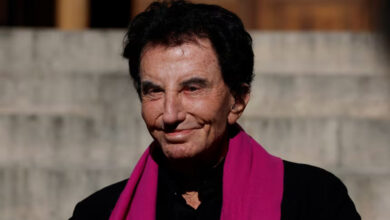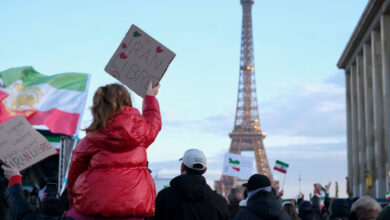
France and Russia both staged air strikes on Islamic State targets in northern Syria on Tuesday as Paris formally requested European Union assistance in its fight against the group behind last Friday's bloody attacks on the French capital.
French warplanes targeted a command post and a recruitment center for jihadists in the Islamic State stronghold of Raqqa in the second consecutive night of strikes ordered by President Francois Hollande, a military command spokesman told Reuters.
A French government source said Russia hit targets in the same area, a day after Hollande appealed to Washington and Moscow to join in a grand coalition to fight the Islamist group that controls swathes of Syria and Iraq.
In Brussels, Defence Minister Jean-Yves Le Drian invoked the EU's mutual assistance clause for the first time since the 2009 Lisbon Treaty introduced the possibility, saying he expected help with French operations in Syria, Iraq and Africa.
"This is firstly a political act," Le Drian told a news conference after a meeting of EU defense chiefs.
The 28 EU member states accepted the French request but it was not immediately clear what assistance would be forthcoming. Britain is agonizing over whether to join air strikes in Syria, while Germany is reticent about joining military action outside Europe.
A manhunt was continuing in France and Belgium on Tuesday for one of the eight attackers who killed 129 people in shooting and bomb attacks on restaurants, a music hall and a sports stadium in the Paris region on Friday.
French police staged 128 raids overnight in the hunt for accomplices and Islamist militant networks, Interior Minister Bernard Cazeneuve said. Police found a third Belgian-licensed car believed to have been used by the attackers and sealed off the area around it in Paris' 18th district.
Cazeneuve told France Info radio police were making rapid progress in their investigation into the attacks but declined to give details.
Investigators searched a house in the suburb of Bobigny that had been rented by one of the suicide bombers who blew himself up in the attacks but found no useful evidence, a judicial source said.
The French strike on Raqqa involved 10 fighter jets launched from the United Arab Emirates and Jordan. Defense officials said the United States had stepped up intelligence sharing, enabling Paris to identify more specific targets.
A French government source said Russia, which until this week has mostly been striking Western-backed groups fighting against Syrian President Bashar al-Assad, had also hit IS targets in Raqqa on Tuesday.
The action, which was not immediately confirmed by Moscow, came hours after the Russian Federal Security Service confirmed that a bomb had exploded a Russian tourist airliner over Egypt's Sinai peninsula last month and President Vladimir Putin vowed retribution. Islamic State claimed responsibility for the Sinai bombing as well as the Paris attacks.
One top suspect, Frenchman Salah Abdeslam, 26, remains at large after escaping back to Belgium early on Saturday and eluding a police dragnet in the Brussels neighborhood of Molenbeek, where he lived with his two brothers.
Hollande has declared a state of emergency allowing administrative arrests and searches without a warrant following the bloodiest attacks in French history.
The president met visiting US Secretary of State John Kerry on Tuesday morning to press his call for separate US-led and Russian-led coalitions in Syria to combine forces and give priority to fighting Islamic State.
Kerry told reporters afterwards that Islamic State was losing territory in Syria and Iraq, while the Western-backed coalition was gaining ground.
"Don't scapegoat refugees"
The UN refugee agency and Germany's police chief urged European countries not to demonize or reject refugees because one of Friday's Paris bombers was believed to have slipped into Europe among migrants registered in Greece.
"We are deeply disturbed by language that demonizes refugees as a group," UN spokeswoman Melissa Fleming said after government officials in Poland, Slovakia and the German state of Bavaria cited the Paris attacks as a reason to refuse refugees.
The head of Germany's Federal Criminal Office said there was no sign that Islamist militants had entered Germany posing as an asylum seeker to commit an attack.




